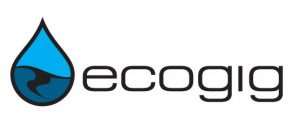Graduate Student Opportunities with ECOGIG-2
– January 29, 2015
Ecosystem Impacts of Oil & Gas Inputs to the Gulf
ECOGIG-2 (www.ecogig.org) explores and studies hydrocarbon cycling in the Gulf of Mexico at natural seeps, tracks the impacts of the Macondo Blowout, and conducts fundamental research aimed at understanding the regulation of hydrocarbon metabolism in the environment.
Through ECOGIG-2, a number of PhD positions are available across an interdisciplinary spectrum. Students have the opportunity to work at sea on research vessels as well as carry out laboratory experiments. The project is highly collaborative, assuring interaction and cooperation with other ECOGIG-2 PIs, students and post docs, both in the US and at European institutions (e.g. the Max Planck Institute for Marine Microbiology in Bremen, Germany, the MARUM program at the University of Bremen, Germany, and the GEOMAR institute, Kiel, Germany). ECOGIG students also receive extensive training in exciting education and public outreach activities. Upon completion of her/his degrees, they are excellent scientists as well as well-versed advocates for ocean literacy and sustainability. ECOGIG-2 is funded by the Gulf of Mexico Research Initiative. Learn more about the ECOGIG-2 program here. Detailed information on the research interests and activities of individual ECOGIG PIs is available here.
Join the Team: Contact PI(s) listed for your area(s) of interest. below. Students with field and/or lab experience and an interdisciplinary academic background (e.g., oceanography, environmental sciences, chemistry, or microbiology) will receive more serious consideration.
- Microbial geochemistry, particularly in the dynamics of pelagic and benthic aerobic methanotrophic bacteria (physiology, activity regulation and metagenomics); the impact of chemical dispersants on microbial community structure and activity; meiofauna abundance and benthic fluxes, incl. chemical microprofiling with microsensors and resuspension experiments of sedimented, highly weathered oil; or the chemistry of dissolved organic matter in deep waters around oil and gas seeps: Contact Prof. Samantha Joye at UGA (mjoye@uga.edu)
- Microbial ecology, physiology and phylogeny of hydrocarbon degraders: Contact Profs. Carol Arnosti (ziervoge@email.unc.edu), Barbara MacGregor (bmacgreg@unc.edu), Andreas Teske (teske@email.unc.edu) or Kai Ziervogel (ziervoge@email.unc.edu).
- Physical oceanography: Contact Profs. Annalisa Bracco (abracco@gatech.edu), Andreas Thurnheer (bmacgreg@unc.edu), Renato Castelao (castelao@uga.edu) or Catherine Edwards (catherine.edwards@skio.uga.edu).
- in situ monitoring of deepwater and seafloor dynamics: Contact Profs. Laura Lapham (lapham@umces.edu).Beth Orcutt (borcutt@bigelow.org), Chris Martens (cmartens@email.unc.edu) or Peter Girguis (pgirguis@oeb.harvard.edu).
- in situ sedimentation rates and marine “oil” snow dynamics: Contact Profs. Uta Passow (uta.passow@lifesci.ucsb.edu), Vernon Asper (vernon.asper@usm.edu), Arne Diercks (arne.diercks@usm.edu), Kai Ziervogel (ziervoge@email.unc.edu), or Mandy Joye (mjoye@uga.edu).
- Biological oceanography: Contact Profs. Joe Montoya (montoya@gatech.edu), Ajit Subramaniam (ajit@ldeo.columbia.edu), Andy Juhl (andyjuhl@ldeo.columbia.edu) or Tracy Villareal (Tracyv@austinutexas.edu).
- Early diagenesis and microbial metabolism: Contact Prof. Christof Meile (cmeile@uga.edu).
- Chemical oceanography, including stable (Jeff Chanton, jchanton@fsu.edu or Joe Montoya, montoya@gatech.edu) or radioisotope (Jeff Chanton, jchanton@fsu.edu) biogeochemistry, dispersant chemistry (Jennifer Field, Jennifer.field@oregonstate.edu), and hydrocarbon organic geochemistry (Beizhan Yan, yanbz@ldeo.columbia.edu or Mandy Joye, mjoye@uga.edu) Students are encouraged to contact the appropriate faculty member and apply to a PhD program.
- Deepwater coral ecology and recovery from the Deepwater Horizon incident: Contact Charles Fisher (cfisher@psu.edu), Iliana Baums (baums@psu.edu) or Erik Cordes (ecordes@temple.edu).
- Remote sensing – both airborne, satellite and at the seafloor: Contact Profs. Ian MacDonald (imacdonald@fsu.edu) or Ajit Subramaniam (ajit@ldeo.columbia.edu).
Follow: Twitter @gulfECOGIG & ECOGIG on Facebook






